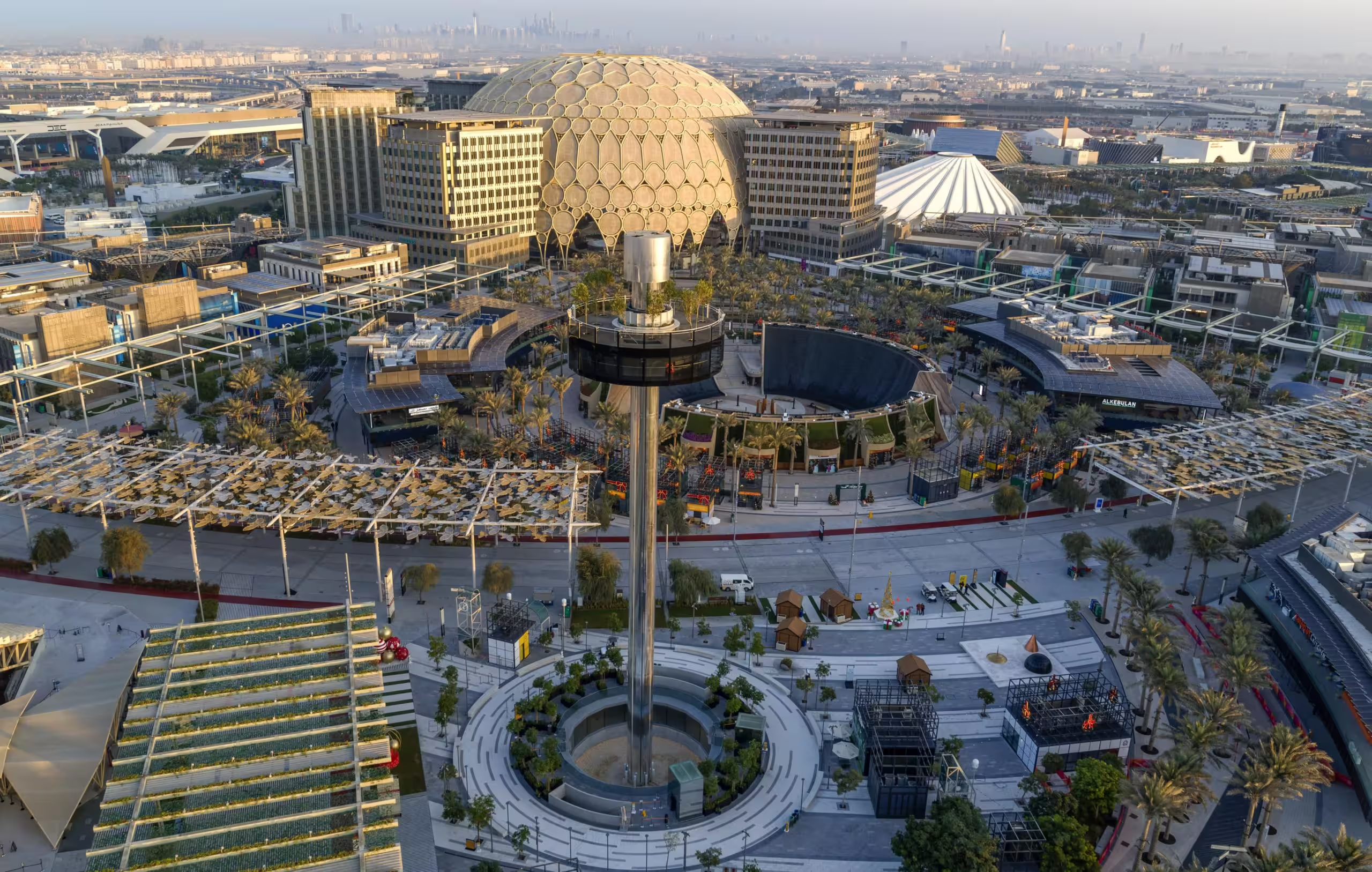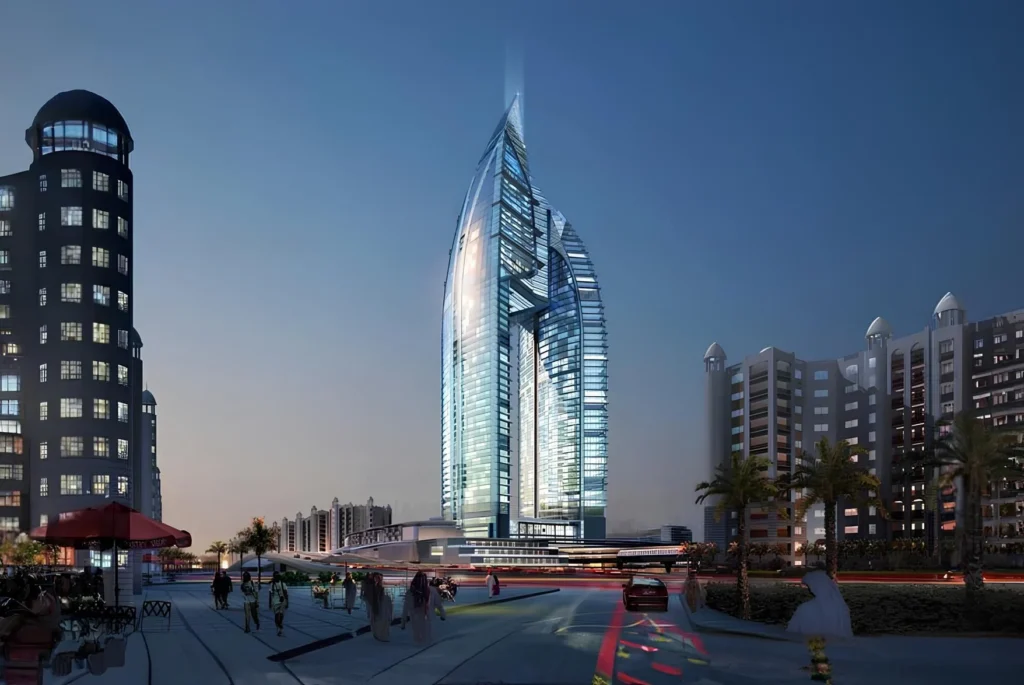Dubai Expo City, the former site of Expo 2020, is set to embark on a $2.72 billion expansion as part of Dubai’s ambitious plans to transform the area into a long-term center for business, culture, and innovation. This expansion aims to bolster Dubai’s status as a global leader in sustainability, technology, and economic growth, aligning with the city’s 2040 Urban Master Plan.
Masterplan Overview: Infrastructure, Business, and Residential Growth
The Dubai Expo City expansion will focus on integrating key infrastructure, urban development, and residential spaces. Following its transformation from a world exhibition venue into a mixed-use development, Expo City’s growth reflects the emirate’s broader strategy of increasing investment in advanced sectors like clean technology and tourism.
The new phase will introduce a residential district featuring a mix of premium and affordable housing, aimed at enhancing the quality of life in the area. The residential offering will be complemented by commercial spaces, co-working hubs, and offices to cater to the growing demand from tech firms, start-ups, and multinational corporations. As a result, the project is expected to further Dubai’s positioning as a regional business hub and economic powerhouse.
Sustainability at the Core
A central pillar of the expansion is its focus on sustainability, with energy-efficient buildings, water conservation, and green energy solutions being fundamental to the design. These measures align with Dubai’s long-term vision to lead global efforts in sustainability and smart city development. The use of renewable energy and environmentally friendly construction techniques aims to reduce the environmental footprint of this extensive urban project.
Cultural and Educational Additions
Beyond residential and commercial growth, the Expo City expansion will include cultural and educational spaces, positioning Dubai as a knowledge-based economy. Educational institutions, museums, and research centers will be integrated into the development, attracting global partnerships and contributing to Dubai’s ambition to become a hub for research and development.
Tourism and Leisure Facilities
Tourism will remain a key driver of Expo City’s development, with plans for hotels, restaurants, and entertainment venues that will build on the existing Expo 2020 legacy. New pedestrian-friendly pathways, parks, and open spaces are designed to enhance liveability and promote outdoor activities, a growing trend in urban design worldwide. These upgrades will ensure that Expo City continues to attract both local residents and international visitors, cementing its role as a major cultural and business destination.
Economic Impact
The expansion is expected to generate significant economic activity, creating jobs in construction and across multiple sectors in the long term. The influx of businesses and residents will contribute to Dubai’s overall economic growth, helping the city remain a key gateway to markets in the Middle East, Africa, and South Asia. The project is a flagship for Dubai’s broader vision of sustainable urban development, which aims to balance growth with environmental responsibility.
A Vision for the Future
Expo City’s expansion marks a significant step in Dubai’s urban evolution. With its focus on sustainability, business innovation, and cultural enrichment, the development is set to play a pivotal role in Dubai’s future as a global leader in smart urban living, economic diversification, and environmental stewardship.







